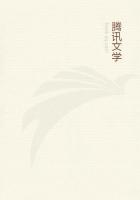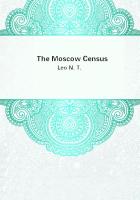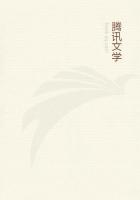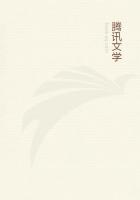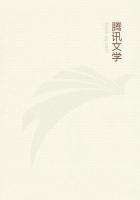The second part of "Zarathustra" was written between the 26th of June and the 6th July. "This summer, finding myself once more in the sacred place where the first thought of 'Zarathustra' flashed across my mind, Iconceived the second part. Ten days sufficed. Neither for the second, the first, nor the third part, have I required a day longer."He often used to speak of the ecstatic mood in which he wrote "Zarathustra"; how in his walks over hill and dale the ideas would crowd into his mind, and how he would note them down hastily in a note-book from which he would transcribe them on his return, sometimes working till midnight. He says in a letter to me: "You can have no idea of the vehemence of such composition," and in "Ecce Homo" (autumn 1888) he describes as follows with passionate enthusiasm the incomparable mood in which he created Zarathustra:--"--Has any one at the end of the nineteenth century any distinct notion of what poets of a stronger age understood by the word inspiration? If not, Iwill describe it. If one had the smallest vestige of superstition in one, it would hardly be possible to set aside completely the idea that one is the mere incarnation, mouthpiece or medium of an almighty power. The idea of revelation in the sense that something becomes suddenly visible and audible with indescribable certainty and accuracy, which profoundly convulses and upsets one--describes simply the matter of fact. One hears--one does not seek; one takes--one does not ask who gives: a thought suddenly flashes up like lightning, it comes with necessity, unhesitatingly--I have never had any choice in the matter. There is an ecstasy such that the immense strain of it is sometimes relaxed by a flood of tears, along with which one's steps either rush or involuntarily lag, alternately. There is the feeling that one is completely out of hand, with the very distinct consciousness of an endless number of fine thrills and quiverings to the very toes;--there is a depth of happiness in which the painfullest and gloomiest do not operate as antitheses, but as conditioned, as demanded in the sense of necessary shades of colour in such an overflow of light. There is an instinct for rhythmic relations which embraces wide areas of forms (length, the need of a wide-embracing rhythm, is almost the measure of the force of an inspiration, a sort of counterpart to its pressure and tension). Everything happens quite involuntarily, as if in a tempestuous outburst of *******, of absoluteness, of power and divinity.
The involuntariness of the figures and similes is the most remarkable thing; one loses all perception of what constitutes the figure and what constitutes the simile; everything seems to present itself as the readiest, the correctest and the ******st means of expression. It actually seems, to use one of Zarathustra's own phrases, as if all things came unto one, and would fain be similes: 'Here do all things come caressingly to thy talk and flatter thee, for they want to ride upon thy back. On every simile dost thou here ride to every truth. Here fly open unto thee all being's words and word-cabinets; here all being wanteth to become words, here all becoming wanteth to learn of thee how to talk.' This is MY experience of inspiration. I do not doubt but that one would have to go back thousands of years in order to find some one who could say to me: It is mine also!--"In the autumn of 1883 my brother left the Engadine for Germany and stayed there a few weeks. In the following winter, after wandering somewhat erratically through Stresa, Genoa, and Spezia, he landed in Nice, where the climate so happily promoted his creative powers that he wrote the third part of "Zarathustra". "In the winter, beneath the halcyon sky of Nice, which then looked down upon me for the first time in my life, I found the third 'Zarathustra'--and came to the end of my task; the whole having occupied me scarcely a year. Many hidden corners and heights in the landscapes round about Nice are hallowed to me by unforgettable moments.
That decisive chapter entitled 'Old and New Tables' was composed in the very difficult ascent from the station to Eza--that wonderful Moorish village in the rocks. My most creative moments were always accompanied by unusual muscular activity. The body is inspired: let us waive the question of the 'soul.' I might often have been seen dancing in those days. Without a suggestion of fatigue I could then walk for seven or eight hours on end among the hills. I slept well and laughed well--I was perfectly robust and patient."As we have seen, each of the three parts of "Zarathustra" was written, after a more or less short period of preparation, in about ten days. The composition of the fourth part alone was broken by occasional interruptions. The first notes relating to this part were written while he and I were staying together in Zurich in September 1884. In the following November, while staying at Mentone, he began to elaborate these notes, and after a long pause, finished the manuscript at Nice between the end of January and the middle of February 1885. My brother then called this part the fourth and last; but even before, and shortly after it had been privately printed, he wrote to me saying that he still intended writing a fifth and sixth part, and notes relating to these parts are now in my possession. This fourth part (the original MS. of which contains this note: "Only for my friends, not for the public") is written in a particularly personal spirit, and those few to whom he presented a copy of it, he pledged to the strictest secrecy concerning its contents. He often thought of ****** this fourth part public also, but doubted whether he would ever be able to do so without considerably altering certain portions of it. At all events he resolved to distribute this manuscript production, of which only forty copies were printed, only among those who had proved themselves worthy of it, and it speaks eloquently of his utter loneliness and need of sympathy in those days, that he had occasion to present only seven copies of his book according to this resolution.
Already at the beginning of this history I hinted at the reasons which led my brother to select a Persian as the incarnation of his ideal of the majestic philosopher. His reasons, however, for choosing Zarathustra of all others to be his mouthpiece, he gives us in the following words:--"People have never asked me, as they should have done, what the name Zarathustra precisely means in my mouth, in the mouth of the first Immoralist; for what distinguishes that philosopher from all others in the past is the very fact that he was exactly the reverse of an immoralist.
Zarathustra was the first to see in the struggle between good and evil the essential wheel in the working of things. The translation of morality into the metaphysical, as force, cause, end in itself, was HIS work. But the very question suggests its own answer. Zarathustra CREATED the most portentous error, MORALITY, consequently he should also be the first to PERCEIVE that error, not only because he has had longer and greater experience of the subject than any other thinker--all history is the experimental refutation of the theory of the so-called moral order of things:--the more important point is that Zarathustra was more truthful than any other thinker. In his teaching alone do we meet with truthfulness upheld as the highest virtue--i.e.: the reverse of the COWARDICE of the 'idealist' who flees from reality. Zarathustra had more courage in his body than any other thinker before or after him. To tell the truth and TOAIM STRAIGHT: that is the first Persian virtue. Am I understood?...The overcoming of morality through itself--through truthfulness, the overcoming of the moralist through his opposite--THROUGH ME--: that is what the name Zarathustra means in my mouth."ELIZABETH FORSTER-NIETZSCHE.
Nietzsche Archives, Weimar, December 1905.

